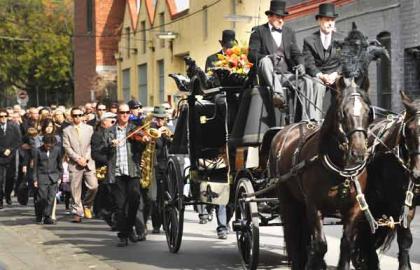
No matter how old or young you may be, it is never too late or too early to start planning how your family will be taken care of after your passing. Whether you or a loved one has been diagnosed with a terminal illness, or you simply wish to prepare so that your family can grieve for your passing without the hindrance of financial struggle or the intricacies of planning a funeral, know that planning ahead is always your best option. Today, funeral costs can amount to upward of $8000 or more, and the cost is only rising. For many, this can become a financial burden, while they simultaneously attempt to fulfill the wishes of the deceased or honor religious tradition. Fortunately, there are numerous options available today that were previously not available in the past. Visit a site like BurialInsurance.org to make sure you and your family are prepared for your decision and cover the financial aspects of your planning to ensure your family isn’t left with impossible bills in the event of your death.
Traditional Burial
Many people still opt for the traditional burial option, which includes many steps. The traditional burial usually consists of choosing a mortuary, embalming the deceased member’s body, preparing the body for viewing, choosing a casket, hosting a viewing, choosing flower arrangements, buying a plot or vault in a cemetery, and lowering the casket for burial. Some families then host a lunch or dinner so that the attendants can enjoy time together. This type of funeral is usually the most expensive option.
Still, many people choose a traditional funeral to fulfill religious or personal obligations. The main faiths that proclaim burial as a necessary option are Christianity, Judaism, and Islam. People who are members to one of these faiths will likely seek to honor and respect religious tradition as well as to spiritual practice inherent to their beliefs. In recent years, Christianity—which includes Catholicism—have loosened restrictions on burial services and many churches now accept cremation.
Those concerned with an environmentally friendly burial may opt for caskets with a quicker decomposition rate, which usually excludes hardwood and metals. Some also forego embalming, which uses carcinogenic chemicals which will eventually infiltrate the earth, and are a known carcinogen.
Cremation
Cremation consists of incinerating the body of the deceased and collecting the ashes. The ashes are usually placed in an urn or scattered in a ceremony. While both traditional burials and cremation generally include a ceremony or service, the costs of cremation will likely be considerably cheaper than a traditional burial. In fact, the popularity of cremation is rising significantly due to cost, demographics, loosened religious practices, and environmental concerns. The cost of a cremation largely depends on the type of service chosen, however the process will save at least a couple thousand dollars, if not more.
Contrary to traditional burials, some faiths actually mandate or encourage cremation is part of religious practice. Buddhism, Sikhism, and some other eastern religions believe that cremation is necessary at it is the soul that is the only entity that survives death. Even Hinduism prefers cremation, with the exception of young children, saints, and Hijras.
Another reason why cremation is growing in popularity has to do with growing environmental concerns. Land scarcity means that cemeteries take up valuable room for agriculture and building. In addition, many materials used in a traditional burial are unsustainable. Most hardwood and metal caskets undergo and extremely low decomposition rate, which makes the already expensive price of a casket much less appealing. Finally, the embalming process, which consists of formaldehyde, ethanol, methanol, and other solvents, create a cocktail of chemicals that are known carcinogens. However, embalming is not generally a requirement for burial services.
Donating the Body to Science
Another option growing in popularity is donating the body to science. It is the preferred option for those seeking a cheap option as well as for those who wish to further medical study. Medical and surgical schools usually lack donor bodies, which in turn restricts the opportunity of medical training that can save thousands of lives in the future. Body donation is not only an incredibly generous gift for medical and anatomical study, but it also covers all death care expenses. While traditional burials cost about $8000, body donation usually hovers around $1000. However, body donation is not for everyone. It is natural to feel uncomfortable with putting your body in foreign hands, so perhaps the other options will seem more appealing.
Planning a funeral isn’t an enjoyable task, but it’s a necessary one. Consider these facets of the planning process and make decisions so your family doesn’t have to when the time comes.
